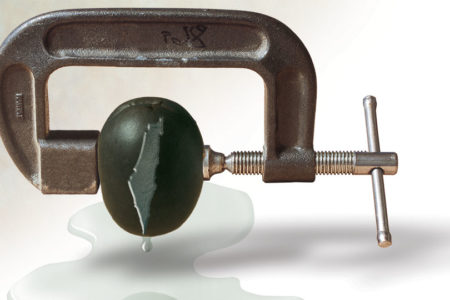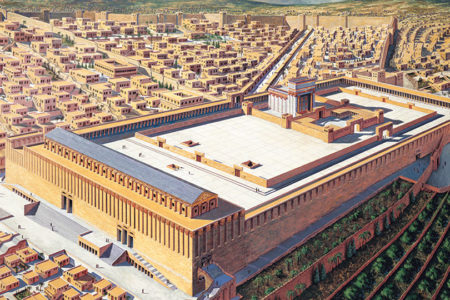Eye on the Middle East Apr/May 1998
News you probably haven’t heard:
Since the January visits to Washington by Benjamin Netanyahu and Yasser Arafat, much has been said about a “demilitarized” Palestinian state. It is presumed that such a state would cause no appreciable problems for Israel, while bringing much aid and comfort to the Palestinian people. The level of self-esteem and national pride would turn Palestinians away from violence and toward more peaceful pursuits—or so the thinking goes.
While Netanyahu came away from the meetings with Bill Clinton looking more statesmanlike than his detractors wished, he has still been portrayed in some quarters as uncooperative and less than forthcoming about his true agenda. Arafat, on the other hand, had a relatively smooth ride. While he left Washington with little to show for his trip, he was not fully exposed for his shortcomings.
One shortfall that escaped media scrutiny is the rampant corruption that exists within the Palestinian Authority. It seems that millions of dollars—donated by foreign countries such as the United States—have vanished or been poured into lavish villas for Arafat’s operatives. As a result, there have been so many departures from the ranks of Palestinian Authority leaders that there is a call for new elections in an attempt to find better stewards than the Chairman has placed within reach of the till.
Then there is the matter of those tunnels uncovered by the Israelis through which illegal arms were being moved. The passages, dug from Egypt to Gaza, have provided the means of transporting hundreds of grenade launchers and SAM-7 anti-aircraft missiles to be placed in the hands of those preparing for a new offensive against Israel.
The breach of governmental integrity in fiscal matters and preparations for new violence should be widely reported by responsible journalists. The fact that there is such scant attention drawn to these problems may reflect a reluctance to credit Israel’s Prime Minister with knowing what he is talking about, and his being correct in asking for proof through performance rather than promises before making more unilateral concessions to his “peace partners.”







